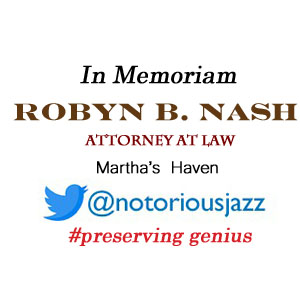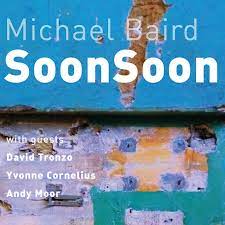
Daily Dose Of Jazz…
Michael Baird was born Lusaka, Zambia on July 5, 1954 and moved to the Netherlands at an early age, where he learned to play drums. Since the mid-1970s he has worked with several Dutch jazz groups and from 1975-83 he played and recorded with Gijs Hendriks, Slide Hampton, Kenny Drew, Raul Burnet, Sonny Grey, Siggi Kessler, Michel Herr, Michel Grailler, Joe Diorio, Jan Akkerman, Wim Overgaauw, Stan Tracey, and Kenny Wheeler.
He founded his own label SWP Records in 1986, led his group Sharp Wood for a decade beginning in 1986 and the octet Utrecht Deep Artment for two years. In 2000 he put together a quintet CapeAbility, followed by sextet Trendy 3D Junk and by 2002 was performing solo concerts along with various other projects and composition commissions.
He has compiled and produced a 22 Cd series “Historical Recordings by Hugh Tracey” of African music from the 40s and 50s, made his own field recordings in Zambia, Zimbabwe, Lesotho and released both on SWP Records.
Drummer, percussionist and keyboardist Michael Baird continues to perform, record and push the boundaries of jazz.
More Posts: bandleader,drums,history,instrumental,jazz,keyboards,music,percussion
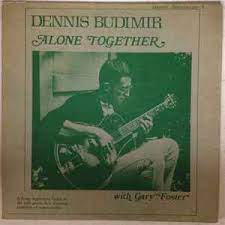
Daily Dose Of Jazz…
Dennis Matthew Budimir was born on June 20, 1938 in Los Angeles, California. He learned to play piano and guitar in his youth and first played professionally when he was fourteen years old. In mid Fifties Los Angeles he played in a quartet with La Monte Young, Billy Higgins, and Don Cherry and by the late 1950s he was working in the bands of Ken Hanna, Keith Williams, Harry James, and Chico Hamilton.
From 1960–1961 he worked with Bud Shank and accompanied Peggy Lee prior to entering military service. After his discharge in 1963 he toured Japan with Bobby Troup and returned to the Los Angeles area, where he came off the road and became a studio musician for the next several decades. He recorded in this capacity with Lalo Schifrin, Marty Paich, Don Ellis, Gil Melle, Ella Fitzgerald, Milt Jackson, Stan Getz, Julie London, Jimmy Smith, Ray Brown, Johnny Mandel and the Capp-Pierce Juggernaut.
This opportunity also led him to record with Joni Mitchell, The Carpenters, Brian Wilson, Barbra Streisand, Ravi Shankar, Frank Zappa, Linda Ronstadt, Dusty Springfield, Dave Grusin, Quincy Jones, David Axelrod, Tom Waits, Harry Nilsson, George Harrison, Ringo Starr, Johnny Mathis, Cher, and Doris Day. He recorded more than 900 movie soundtracks from the early 1960s until the 2000s.
Guitarist Dennis Budimir, considered to be a member of The Wrecking Crew, transitioned on January 10, 2023 at the age of 84.
More Posts: guitar,history,instrumental,jazz,music
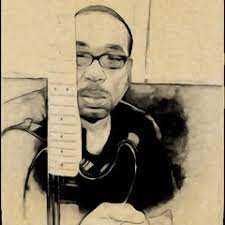
Daily Dose Of Jazz…
Kenn Smith was born Kenneth Lamont Smith on April 27, 1962 in Chicago, Illinois.
As a child of the 60s and Seventies living on the WestSide of his hometownhe first heard the sounds of Motown, Soul, Funk, Country, Jazz and Rock. His school was shows like Hee Haw and Midnight Special, his parents’ record collection, and a neighborhood filled with amateur and professional musicians.
When the family moved to the SouthSide in 1975, Smith began his guitar studies at age 13 with a visit to the local music store purchasing two Mel Bay books. Three years later the family moved to the western suburbs of Maywood, Illinois. At 16 he began classical guitar studies with guitarist Bruce Walters, and later continued studies at Jack Cecchini Studio.
While attending Proviso East High School, he played electric and classical guitar as well as timpani in the Proviso Township Orchestra, electric guitar and bass in the Proviso East High School jazz band, where he received the Louis Armstrong Award for Outstanding Jazz Improvisation during his senior year.
1982 saw Kenn beginning his career teaching guitar at Robinson’s Music Academy in Maywood, as well as performing with local funk and fusion bands. This he did while attending Columbia College of Chicago, studying music management and production. In 1987 he enrolled at the American Conservatory of Music where he studied jazz guitar and composition. In between those years of teaching, performing and study, he became an avid fan of progressive rock and fusion, developing skills as a guitarist, bassist and composer.
In 1986, he began his career as a freelance guitarist and bassist, performing on Chicago’s jazz, blues and rock scene. But it wasn’t till 1989 his professional career took off, working as a guitarist at the Chicago Cotton Club. It was here he later formed his first jazz trio and opened for jazz greats Shirley Horn, Stanley Turrentine, Freddy Cole, and Art Porter. As a jazz side man he played with other jazz greats, Jodie Christian, Guy Fricano, Johnny Frigo, Bobby Broom, Najee and many others.
He would go on tour with the Chi-Lites, start his own label Kenn Smith Music, has written, produced and recorded eight albums, as well as authored an instruction book for electric bass and numerous articles for online magazines such as Mel Bay Bass Sessions, and Bass Musician Magazine.
Guitarist, bassist, composer, educator and journalist Kenn Smith, who is well versed in many styles of music, continues to explore his music.
More Posts: author,bass,composer,educator,guitar,history,instrumental,jazz,music
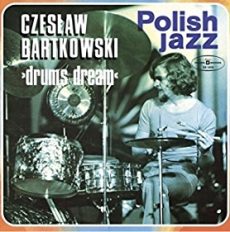
Daily Dose Of Jazz…
Czesław Kazimierz Bartkowski was born April 19, 1943 in Łódź, Poland and has been dealing with music since the age of 6. A percussion class graduate of the Secondary Music School in Wrocław, he made his official debut in 1960 as a drummer for Jerzy Pakulski ‘s Far Quartet.
In 1963, he met Zbigniew Namysłowski and became a musician in his band Zbigniew Namysłowski Quartet. He also played with other well-known jazz groups, e.g. with Czesław Niemen’s Niemen Enigmatic or Michał Urbaniak’s Group, and in trios with various musicians. He has also collaborated with the Polish Radio Jazz Studio and Sławomir Kulpowicz’s Mainstream and InFormation bands .
In addition, he participated in the recording of such singers as Ewa Bem, Urszula Dudziak and Stanisław Sojka, and such foreign musicians as: Freddie Hubbard, Clark Terry, Joe Newman, Art Farmer, Ben Webster, and the Polish band Novi Singers.
Not only has he performed in Poland, but abroad in India, USA, New Zealand, Australia and numerous European countries. In the winter of 1976, he took part in the jazz workshop Radost ’76 in Mąchocice, Poland near Kielce, which was immortalized in the documentary titled We’re Playing Standard!.
In 1993 he became a lecturer at the Secondary School of Music. Fryderyk Chopin in Warsaw, Poland and the Warsaw Jazz Studio. Drummer and pedagogue Czesław Bartkowski continues his endeavors in music.
More Posts: bandleader,drums,history,instrumental,jazz,music
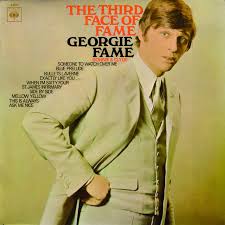
Daily Dose Of Jazz…
Leslie Richard Condon born February 23 1930 in Kennington, London, England of Irish stock, took up the trumpet in his late teens. Largely self-taught, he worked with local dance bands before doing his national service, when he played for the Eager Beavers at RAF Wroughton, Wiltshire.
Turning professional in 1952, he played with the usual round of palais bands and then took to the sea as a member of Geraldo’s Navy. Working as a musician on Cunard liners crossing the Atlantic allowed him to worship at the feet of the great exponents of bebop on New York’s 52nd Street. Originally a conventional jazz player, like others of the second wave of modernists he was bowled over by bebop, forging an eloquent style of his own, building on what he knew of Dizzy Gillespie, Fats Navarro and Miles Davis.
In 1954, he became a founder member of British bebop pioneer Tony Crombie’s new band, playing alongside trumpeter Jimmy Deuchar and trombonist Ken Wray. Despite having little formal musical education, he was a valued composer and arranger, contributing to the Crombie band book and recording with the drummer for Decca in 1955. He also began to record and solo regularly with bands led by Vic Lewis and Hayes, before joining drummer Tony Kinsey’s successful quintet.
Condon was among the local players added to form Woody Herman’s (Anglo-American) Herd when the veteran US bandleader toured the UK in 1959. He formed a rewarding friendship with Herman’s lead trumpeter Reunald Jones, formerly a key member of the Count Basie orchestra.
He went on to have a year-long association with Jamaican alto-saxophonist Joe Harriott, famous for his pursuit of “free form” jazz alongside his more structured pieces. He went on to work with a dazzling array of local movers and shakers, recording with the Hayes and Tracey big bands and performing with just about every other significant jazz modernist of the day. An active studio musician, he played for radio and television shows, recorded with singer Georgie Fame and appeared on the Beatles’ Revolver album. His theatre work included a two-year stint with the musical show Bubbling Brown Sugar and a visit to South Africa in 1981, accompanying the singer Jack Jones.
Dental problems forced Condon to cease playing the trumpet in 1990, after which he confined himself to playing the piano at home, composing and studying music. Trumpeter Les Condon, one of the modern players, transitioned on October 30 2007.
More Posts: history,instrumental,jazz,music,trumpet




